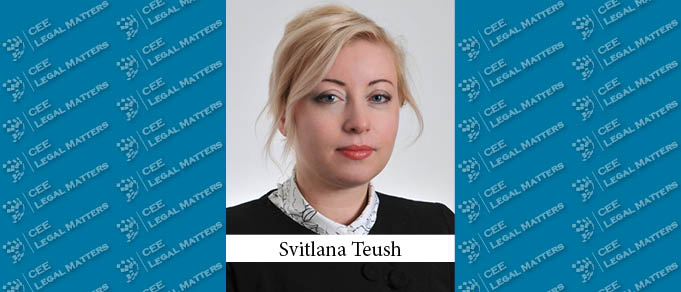By ratifying the European Convention on Human Rights in 1992, Hungary has committed itself to ensure the right to a fair trial within a reasonable time and to guarantee the right to an effective remedy for any violation of this right. In its judgment in Gazso v. Hungary, the European Court of Human Rights called on Hungary to establish a domestic remedy capable to handle the structural deficiencies identified in the judgment. As a result, at the end of June 2021, a new Act on the Enforcement of Material Compensation for Delay in Civil Proceedings was published in the Hungarian Official Gazette, which will enter into force on 1 January 2022. The Act establishes a new legal remedy for compensation for fundamental rights violations, called ‘material compensation’ which is different from the general compensation (in Hungarian: “kartalanitas”), indemnification or non-pecuniary compensation (in Hungarian: “serelemdij”).
New Deadlines Provided by Amendments to the Law on Planning and Construction
On 24 May 2021, the National Assembly of the Republic of Serbia adopted the amendments to the Law on Planning and Construction (“Official Gazette of the RS”, No. 52/2021), which entered into force on 25 May 2021.
Romania: The Close Link Between GDPR Compliance and Cyber Security Breaches Is Often Disregarded
The close relationship between data protection and cyber security results from Art. 5 of the European Union’s (EU) General Data Protection Regulation (“GDPR”) which outlines one of the most important principles relating to processing of personal data: “integrity and confidentiality”.
A Single Register of Legal Entities Is to Be Created in 2023
Currently, legal persons and organizational entities are registered by various courts and authorities: companies are registered by the court of registrations, civil organizations by the courts of law, while investment funds, for example, are registered by the Hungarian National Bank. The data content and operation of these registers also differ.
Amendment in Administrative Procedural Law: Administrations Term of Response is Shortened
With entry into force of the "Law on the Amendment of the Code of Criminal Procedure and Some Other Codes" ["Amendment Law"] published in the Official Gazette dated July 14, 2021, the terms in the Administrative Procedural Law No. 2577 [“APL”] regulating the silence of the administration against the applications filed are shortened by half. In addition, some crucial changes were introduced to the Turkish Penal Code No. 5237 ["TPC"] and the Criminal Procedural Law No. 5271.
COVID Tax Measures Updated in Hungary
Latest tax reliefs aim to support tourism and travel industry in Hungary, as tourism was one of the most affected sectors by COVID pandemic. In order to boost the restart of domestic tourism, the latest governmental decree of 381/2021 introduced several new tax measures, mainly for this sector. As a result, tourism development contribution of 4% is still not payable by the end of 2021.
Agricultural Land Market is Opening up in Ukraine
For several decades, it was prohibited in Ukraine to alienate, or change the designated use of, certain types of the privately owned agricultural land plots used for the farming and commercial agricultural production, which impaired the rights of private landowners and affected the efficiency, liquidity and transparency of the market.
Legal Liability for AI Decision Making
With the most recent technological developments, Artificial Intelligence [“AI”] and related technologies are being deployed by governments and businesses alike in a wide spectrum of sectors. With applications of AI increasing exponentially in every possible aspect of society, there is no doubt an accompanying aspect of risk, which is nearly impossible to measure. In this article, we try to focus on the possible legal ramifications and liability risks associated with AI decision-making.
Foreign Direct Investment in Central Europe: Romania
The global pandemic has impacted all markets, with subsequent ramifications for M&A. Investors are now seeking greater protection against general lock-downs and supply-chain disruptions, while governments aim to protect critical supplies and services by imposing new regulations on foreign investment in crucial or strategic industries.
Blockchain and (Un)Real Estate
Blockchain technology has – so far – not lead to a transfer of the world's land registers onto this technology or to a "tokenization" of title (documents). The only significant exception in this respect is Georgia where a purchaser's title to real property can be registered by execution of a smart contract.
Not Even Loan Contracts Are Set In Stone
A common stereotype prevails that banking contracts are non-negotiable, and borrowers hardly have a say in the terms of their contracts. However, this is not the case: like any economic operator, banks are also willing to compromise. Banks’ flexibility varies depending on who and when is seeking preferential treatment and on the contractual terms subject to negotiations.
The Terms and Conditions for Erecting Constructions on Private Land Plots Designated as Green Areas after the Suspension of the Bucharest Districts’ Coordinating PUZs
In this article we tackle two major questions for any real estate investor when taking a decision regarding a future real estate project: to what extent is it permitted to erect buildings on land plots designated as green areas upon their acquisition or upon securing those plots for the future project? And what about when a reconversion of such land plots from green areas into other functions, such as commercial, residential, industrial etc., occurred at some point in the past?
Ukraine Imposes VAT on Digital Services Supplied by Non-Residents
On 2 July 2021, Law of Ukraine “On Amending the Tax Code of Ukraine on Abolition of Taxation of Income Received by Non-Residents in the Form of Payment for Production and/or Distribution of Advertisements and Improvement of Value-Added Taxation of Transactions Involving the Supply of Electronic Services by Non-Residents to Individuals” No. 1525-ІХ (the “Law”) entered into force. The Law introduces VAT on digital services supplied by non-residents to Ukrainian individual customers and abolishes 20% withholding tax on advertising services.
Competition And Digital Markets: New Stream in Tackling Abuse of Dominant Position
The standard approach in cases involving abuse of dominant position implies that the competition authority determines the market influence of the company due to which it can operate in the relevant market to a significant extent independently of other market participants and, provided that the company has a dominant position, whether its actions result in abuse of such position. The standard approach came naturally in markets that are geographically and economically limited. The core of the principle is that the public authority reacts ex-post (after the event) to abuses, by imposing the obligation to terminate anticompetitive practices or imposing penalties for prohibited behaviour.
Foreign Direct Investment in Central Europe: Poland
The global pandemic has impacted all markets, with subsequent ramifications for M&A. Investors are now seeking greater protection against general lock-downs and supply-chain disruptions, while governments aim to protect critical supplies and services by imposing new regulations on foreign investment in crucial or strategic industries.
The EU Commission Presents next Steps in the Setting up of the Joint Cyber Unit
The COVID-19 pandemic has boosted digitalization and digital interaction at all levels of European society. Along with increased interconnectivity, however, came greater vulnerabilities and threats from a cybersecurity perspective.
Romania: Amendments to the Obligation to Wear a Protective Mask at the Workplace
The Health Ministry and the Ministry of Internal Affairs have issued Order no. 1204/99/09.07.2021 to supplement Order no. 874/81/2020, which established an obligation to wear a protective mask, epidemiological triage and mandatory hand disinfection to prevent contamination with the SARS-CoV-2 virus during the state of alert (the “Order”) and have published it in the Official Gazette no. 683 dated 9 July 2021.
Debt Collection Series-2: How Can a Foreign Company/Individual Collect Its Due Receivables in Turkey?
International trade has grown exponentially, and international trade undoubtedly means international debt collection. Especially, while the number of financially distressed companies is rapidly increasing due to the Covid-19 pandemic, international debt collection has become more important than ever. Debt collection proceedings are in general similar for both Turkish and foreign companies and individuals. Accordingly, this article highlights the significant points on how a foreign company or individual can collect its receivables in Turkey.









































